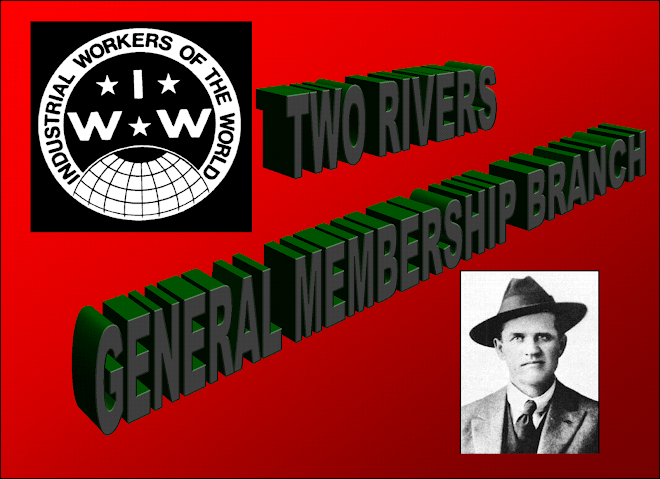Those of you who read the Sept. IW may have noticed the unsigned opinion piece on page 11 titled Nationalization Controls Venezuelan Workers. And if you know anything about the history and current situation in Venezuela you may, as I certainly did, have problems with the main thesis of the piece and with some of the "facts" as presented. Take for instance this analysis concerning the re- nationalization(and socialization) of many key industries, industries that not so long ago ,in fact, belonged to the people( that is, the State) of Venezuela.
"However,the concentration of economic and political power in the hands of the President is worrisome." Well, it would indeed be worrisome were it true, but the fact that many industries and banks are being nationalized does not automatically transfer "economic power" into one mans hands. It should be mentioned that there is also a legislative body, courts, and a huge electorate which share power in a balanced fashion. Witness Chavez's loss at the polls with the last referendum. And his acceptance of that loss. Were he the dictator he is here made out to be would he call for elections on each of these reforms? Does the (unknown) author assume Chavez makes Castro like decisions over every aspect of economic planning or holds personal title to all these industries?
Then there is this observation: "His rhetoric and actions have polarized Venezuela into the unfortunately familiar 'us and them','patriots and traitors' model of social control." Anyone with the slightest historical knowledge would know that Venezuela's "polarization" began in colonial times and is very much a socio-political split between haves and have nots, light and dark skinned, in other words between those who controlled the oil wealth (with the blessing of the USA) and those who were left hungry and illiterate in the barrios and favelas. The flames of polarization are fanned daily by the hard-right and their American allies.
The really troubling aspect of this critique, from a Wobbly point of view, is the analysis of the 2002-3 CVT (oil workers union) strike which was designed to bring down the fledgling Bolivarian Revolution and restore right wing, privitized ownership of the oil sector. This is the authors take:
" The crushing of the strike sent a message to the rest of theVenezuelan working class:be an ally of Chavez or face overwhelming repression."
I have been fortunate enough to have been able to travel to Venezuela with a Witness for Peace delegation and to interview leaders of the CVT as well as academics, human rights activists and other non-partisan observers of the strike and as hard as this might be for the editor of the IW to face, the reality is that sometimes the workers can act in allegiance to reactionary, regressive forces. They may act out of bourgeois self-interest, they may aid in upholding an oppressive regime, they may, like Mr. Block, just be ass kissers for the boss. The cops beating the strikers are workers! What is missing from the article and the authors perspective is any historical context, any mention of CIA involvement in the strike, any mention of the right-wing orchestrated coup attempt just one year before or the atmosphere which led to the strike. What I heard from my conversations with Venezuelans was that the oil workers were a very elite sector,making many times the average wage,and that their union was top-down bureacratic and very much in support of the status quo. Far from a message of fear, what was sent to the working class was a message that a new economic as well as social order was being built, an order which promised a much fairer distribution of wealth for the multitude that had been excluded up till then. What was promised was a revolution which would turn the entire continent upside down, one with a much broader democracy to include indigenous people and those of African descent.
I would hope that our organization would encourage a more nuanced, particular, and historical analysis of current events and not rush to reflexive, doctrinal judgements such as these. What do others think?
Dave Jones aka troutsky
2666 III: Order with the Possibility of Suicide
-
“The Part of Amalfitano” is, at almost exactly eighty pages, the shortest
of the five parts that make up 2666. It expands on the character,
circumstances, ...
1 day ago






